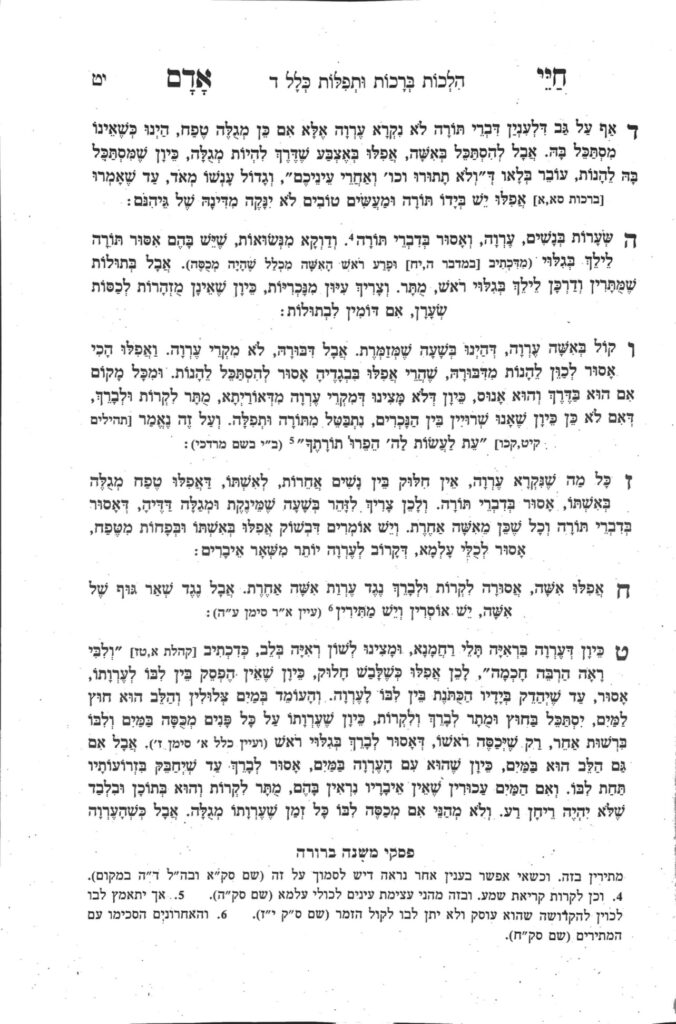We are beginning siman 8. The Chayei Adam writes that the same way a man has an issue of ervah in front of a woman who is uncovered, a woman has an issue of ervah in front of another woman as well. However, this issur only applies regarding the primary ervah. Regarding other parts of the body, it is a machlokes.
The Rema (siman 75) brings that the Rosh holds that it is assur for a woman to recite devarim shebikedusha in front of a woman who is not covering all of the parts of her body which are normally covered (equivalent to the issur of a man vis a vis a woman). This issur also applies to herself when she is not fully dressed. However, the Mishnah Berurah brings that the Rashba disagrees, and the poskim who follow the Rashba include the Gra, Elya Rabbah and Pri Chadash.
The Rashba explains that the primary ervah is a din deoraysa, but the din ervah on the rest of the body is a din derabanan out of concern for hirhur. Therefore, the Rashba holds that since the primary reason for the din derabanan is relevant to men and not to women, Chazal never applied the issur to women. Thus, as long as the primary ervah is covered (the din deoraysa), there is no issur regarding non-primary ervah. The Rosh disagrees, and holds that once Chazal gave those parts of the body a din of ervah, it is not logical to split the issur between men and women, because once Chazal created an issur, the issur remains regardless of whether the purported reason applies.
The Chayei Adam appears to present this question as two opinions, without giving a final decision. The Mishnah Berurah holds the primary psak is in accordance with those who are lenient. Additionally, according to the Gra, the Rosh actually agrees to the Rashba that the issur of non-primary ervah, which is a din derabanan, does not apply to women.
This leniency applies both regarding a woman herself (e.g, a woman making a bracha before she is fully dressed), and between two women (e.g., a woman making a bracha in a dorm room in front of another woman who is not fully dressed). As long as the primary ervah is covered, there is no issue to recite devarim shebikedusha.
Although the Chayei Adam does not give a final psak, we can argue that safeik derabanan lekulah, and one can certainly rely on the psak of the Mishnah Berurah.
Summary
A woman may recite a bracha as long as her primary ervah is covered, even if her non-primary ervah is uncovered. Similarly, a woman may make a bracha in the presence of another woman whose non-primary ervah is uncovered.



